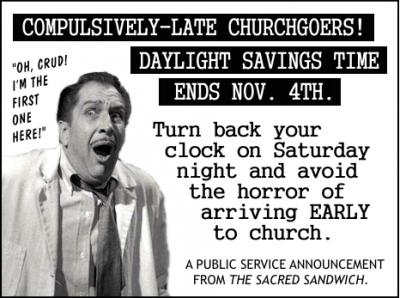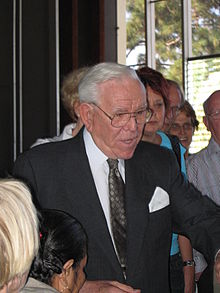Pascal’s Wager is a Bad Bet
Discussion
Don't be early for church!
Body

Source: The Sacred Sandwich
Discussion
Scott Bashoor: "Euphoria In Preaching"
Discussion
Megachurch 'Come and See' Movement Fizzling?
Body
“…the landscape is changing and people are seemingly less attracted to the big box churches”


Discussion